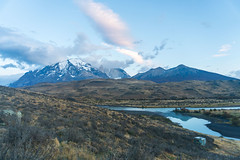Australia to Ban Migrants from Sydney or Melbourne

Perth, Australia
Australia is planning to ban new migrants from living in Sydney or Melbourne in an effort to counter surging population growth in the country’s two largest cities and alleviate pressure on schools, healthcare, roads, public transport, and housing.
Thousands of Britons, Australia’s third biggest source of new arrivals, will be affected by the change, which is likely to be introduced in the new year.
They would be “allocated” to a smaller town or city in their adopted country, where they would have to spend up to five years in an attempt also to rebalance growth towards places that are suffering population stagnation or decline.
Under the plan, presented by Alan Tudge, the population minister, the government intends to impose visa conditions on tens of thousands of migrants requiring them to settle outside the two big cities for up to five years.
About 150,000 permanent migrants deemed to have skills that Australia needs are admitted each year. That includes about 17,000 Britons as well as many Chinese and Indians.
New migrants overwhelmingly choose to settle in the Melbourne and Sydney, pushing population growth to twice the estimates made a decade ago. The unplanned nature of the migrant arrivals is costing £13.5 billion in lost economic activity because of congestion and overloaded infrastructure, according to the government.
While the government has yet to spell out where it will force migrants to live, Adelaide, Perth, Darwin, and Canberra are among the likely destinations.
Although net migration now accounts for 60 percent of Australia’s population growth nationally, it accounts for 84 percent in Sydney, Australia’s largest city with 5.4 million inhabitants. Melbourne, which has 4.8 million people, and southeast Queensland, including Brisbane, with two million, are also struggling with billowing population growth.
“What we’re trying to do is get a better distribution of that [migration] growth so it can help some of those smaller states and some of the regional areas, which are crying out for more people, and take a bit of that congestion pressure off,” Mr. Tudge told the Australian Broadcasting Corporation.
He indicated that the government planned to enforce the policy by making it a condition of entry that migrants live and work where they are told for their first years. That could be enforced by the revocation of the visa or denying newcomers the right to apply for citizenship if they breach location restrictions.
“Nearly every visa has conditions attached to it so it wouldn’t be unusual to have a geographic attachment to a particular visa,” Mr. Tudge said.
About half the migrants admitted to Australia because of their skills are sponsored by particular employers and live where their employers are located. Mr. Tudge said that the new policy would not affect these skilled people but that it would be applied to those not tied to an employer.























